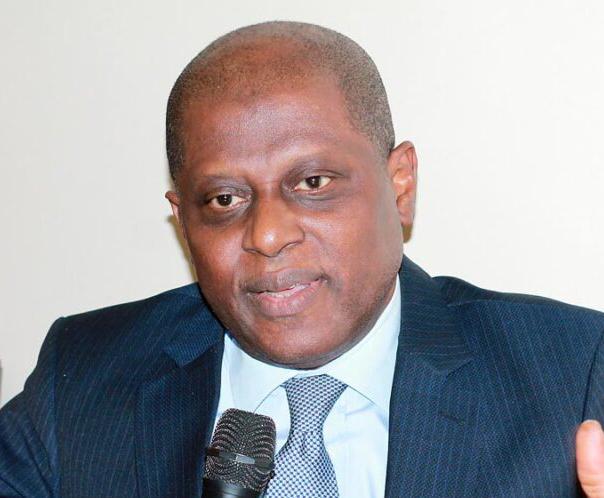Paragraph 1: The CBN’s Decision and Rationale
The Central Bank of Nigeria (CBN), during its 299th Monetary Policy Committee (MPC) meeting, decided to maintain its benchmark interest rate, the Monetary Policy Rate (MPR), at 27.50 percent. This decision, reached unanimously by the committee, signifies a pause in the upward trajectory of interest rates witnessed throughout 2024. The CBN Governor, Olayemi Cardoso, explained that this decision reflects the committee’s assessment of the prevailing economic conditions and outlook for 2025. Several factors influenced the MPC’s decision, including observed stability in the foreign exchange market, a bolstering of external reserves, and a gradual easing of fuel prices. While acknowledging the persistent challenge of inflation, the committee expressed optimism that mitigating food security concerns would contribute to alleviating inflationary pressures, especially those stemming from food prices.
Paragraph 2: Inflation and the Rebased CPI
A significant development impacting the MPC’s decision was the recent rebasing of the Consumer Price Index (CPI) by the National Bureau of Statistics (NBS). This rebasing resulted in a revised headline inflation figure of 24.48 percent for January 2025, a notable decrease from the 34.80 percent recorded in December 2024 under the previous CPI methodology. While still high, the revised inflation rate under the new CPI provided a more accurate representation of the current price dynamics and signaled a potential easing of inflationary pressures, contributing to the MPC’s decision to hold rates steady. The committee emphasized the importance of continued collaboration between monetary and fiscal authorities to sustain these positive macroeconomic trends.
Paragraph 3: Exchange Rate Stability and External Reserves
The CBN’s recent interventions in the foreign exchange market played a crucial role in stabilizing the exchange rate. The introduction of the Electronic Foreign Exchange Matching System and the Nigeria Foreign Exchange Code contributed to improved market transparency and liquidity, leading to a convergence between the official Nigeria Foreign Exchange Market rates and the Bureau de Change rates. This stability, coupled with a resurgence in oil production, reaching 1.54 million barrels per day in January 2025, significantly boosted Nigeria’s external reserves, which reached $39.4 billion by February 14, 2025, providing an import cover of 9.6 months. The MPC viewed these developments as positive indicators of macroeconomic stability.
Paragraph 4: Economic Growth and Banking Sector Resilience
Nigeria’s GDP growth of 3.46 percent in the third quarter of 2024, primarily driven by the non-oil sector and particularly the services industry, further supported the MPC’s decision to hold the MPR. Despite the ongoing macroeconomic challenges, the banking sector demonstrated resilience. The CBN Governor emphasized the importance of strengthening banking system surveillance, especially in light of the ongoing recapitalization efforts for deposit money banks. He assured that the CBN is committed to ensuring the injection of quality capital into the banking system to maintain financial stability amidst both domestic and international uncertainties.
Paragraph 5: Global Economic Risks and Future Policy Direction
The MPC acknowledged the potential impact of global economic risks on Nigeria’s economic outlook. Geopolitical factors, including the ongoing Russia-Ukraine conflict and tensions in the Middle East, were identified as potential disruptors. The committee also expressed concern about the potential impact of the United States government’s increased tariffs on global inflation and economic growth. The MPC reaffirmed its commitment to closely monitoring both domestic and international economic developments and scheduled its next policy meeting for May 19 and 20, 2025. This ongoing vigilance underscores the CBN’s proactive approach to navigating the complex global economic landscape.
Paragraph 6: External Perspectives and the Call for Fiscal Policy Intervention
The decision to hold the MPR came against the backdrop of calls from economic analysts and business groups for a pause in interest rate hikes. The Centre for the Promotion of Private Enterprise (CPPE), for instance, advocated for prioritizing fiscal policy interventions to address inflationary pressures, arguing that further monetary tightening could stifle economic growth and hinder access to affordable credit for businesses. Their CEO, Dr. Muda Yusuf, emphasized the need for a balanced approach, recognizing the potential negative consequences of sustained high interest rates on economic activity. The MPC’s decision to hold the MPR suggests a receptiveness to these concerns and a willingness to consider alternative policy tools in managing the economy. This pause allows the CBN to observe the effects of its previous rate hikes and the impact of the rebased CPI on the inflation trajectory before considering further adjustments to monetary policy.


